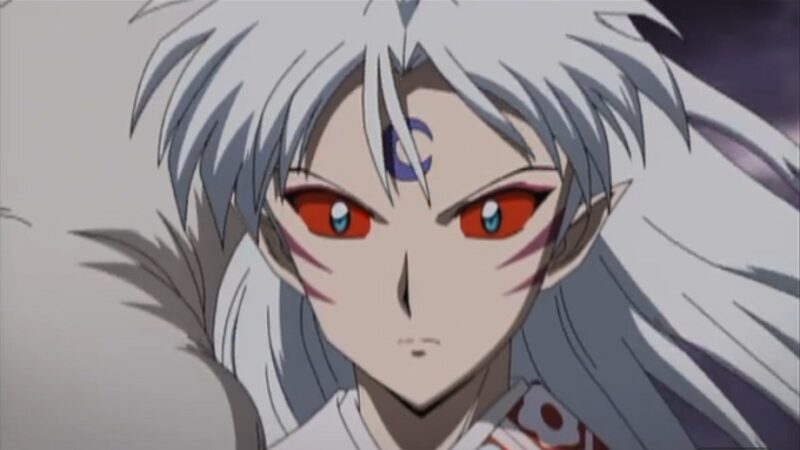
Anime has problems with its story telling habits. Habits we as fans often take for granted. It’s just how anime is, we say when we notice these problems. We overlook them. But in the end, these habits of anime–killing tension, breaking world rules, escalation of power, getting lost in complexity, flashbacks, and undoing everything–are just bad writing. They also tie together, encouraging each other in a spiral that results in mediocre anime, or at least anime that doesn’t reach its potential.
Killing Tension
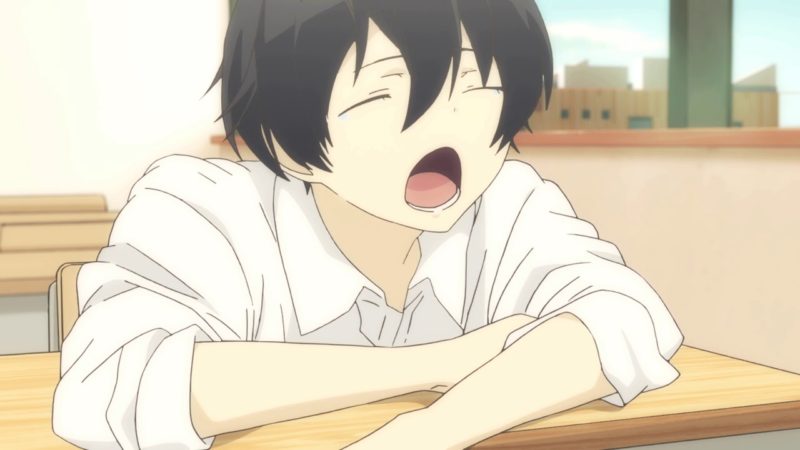
I haven’t decided if anime’s pull back during peak tension comes from Japanese culture or just anime’s force of habit. I’ve pondered if it is a cultural norm because it’s so common in anime and Japanese novels I’ve read. I suspect my Western idea of tension differs a bit from a Japanese idea of tension.
I’ve seen pull-back throughout shonen in particular. By pull-back, I mean random flashbacks or switches to subplots just as the hero confronts the villain. In Naruto, these asides carried on for several episodes, to the point where I couldn’t remember what fight I started watching. One Piece ruined itself in my eyes by doing the same at nearly every conflict peak when I gave it a year-long honest try.
This habit of pulling back violates good writing principles. In good suspense writing, you hold the reader as long as you can at the peak of a tension point. While you could argue asides, flashbacks, and otherwise filler keeps the viewer wondering what will happen when we finally return, in practice it only dulls the tension. Holding the viewer in tension only works when you remain immersed in the main story line. This can involve changing to other characters at the same tension point, but flashbacks (which we will address later) kill tension.
Bleach disappointed me for doing these pull-backs and not having skin in the fight. Tension ratchets when the heroes face true roadblocks, which never really happens in Bleach. True roadblocks means some characters, including main characters, die or fail utterly. Bleach lacks for threat because none of the “good guys” fail in a meaningful way. The cast wants to be thinned, which would’ve increased the tension. Of course, you can do this too much like Game of Thrones. It can become a gimmick, but if a writer handles this right, the villain becomes more threatening. The viewer can’t predict the outcome of any conflict and that mystery creates tension. For being action-oriented, shonen likes to break this principle.
Breaking World Rules
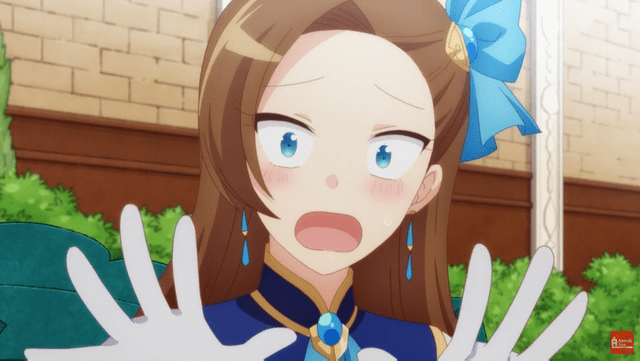
Shonen also likes to break its own rules. This problem may result from the structure of manga. It’s hard to keep your story world’s rules in mind as you try to come up with stories for several years. Breaking world rules often happens after the author makes a big deal of a certain unbreakable principle. For example, in Dragonball Z much fuss was made about the nature of the dragon balls. Namely, they could only revive someone once. While other dragon balls were used to get around this rule, after a certain point the rule didn’t really apply. Likewise, in Fullmetal Alchemist, particularly in Brotherhood, it got to the point where most of the characters seemly ignored the idea of equivalent exchange.
Now there are some anime like Konosuba! that make a show of breaking world rules for comedic effect. That’s okay. But sometimes a story seems to forget various political rules or other rules of a magic system. For the most part, world rule breaking is a minor problem. It can jar people from a story, but if the writing is solid everywhere else, most will overlook this problem. However, the most problematic of world rules deal with character abilities. These are, perhaps, the most commonly violated.
Escalation of Power
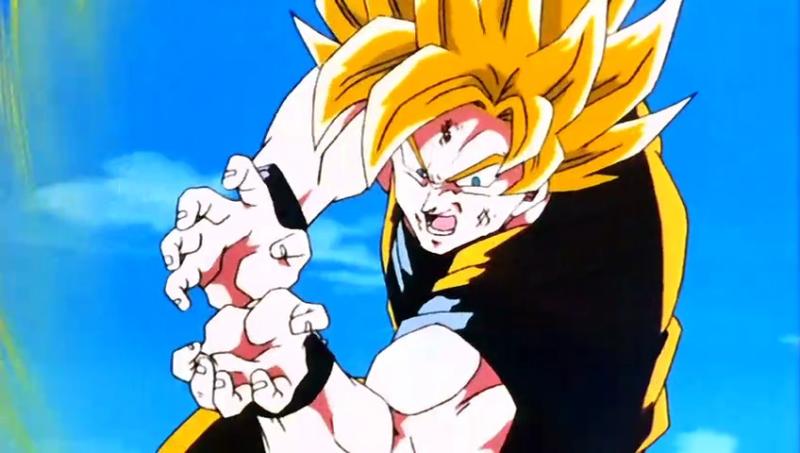
The power problem has long plagued shonen and other action-focused anime. We can thank Dragonball Z for that. The escalation of power requires heroes and villains to gain ever-higher levels, often to the point of being ridiculous. One of the largest problems with power escalation is inconsistency. For example, in Dragonball Z Freeza had the power to destroy entire planets, but at a certain point, the power to do so was scaled back so when Goku fights with Beerus in Dragonball Super, much is made of how the fight can destroy Earth. As if the fight was somehow different from that of Freeza.
Much of the escalation problem comes from the increments. Escalation of power can add suspense and tension if done right. What I argue Bleach should’ve done–kill off much of the Soul Society–is power escalation. But it only works when you have generally smaller jumps in escalation. DBZ has almost logarithmic jumps in power. The problem compounds when you don’t have a villain represent the ultimate cap.
Let’s use a rewrite of Bleach as an example. In various fights, we would see Aizen’s forces kill various members of the Soul Society to ratchet the suspense. I would kill off at least 50-75% of them, sometimes in a blaze of glory that kills the villain with them. Sometimes the good characters would be overpowered. All of the escalation seeks to set up Aizen as the ultimate power-cap for Ichigo to overcome. I would have Aizen face down Yamamoto–the supposed most powerful person in existence–and have Aizen utterly overpower and outsmart him. This sets the challenge at its ultimate peak and builds a high level of tension. Compound this further by writing in the deaths of Chad, Uryu, and several other core characters. Of course, I’m running into Game of Thrones territory here, but Bleach’s cast is too large.
The key is to have an ultimate power cap that isn’t ridiculous. Aizen can’t destroy planets, but he would still be a high power level to overcome. However, such writing also requires the series to have a planned end which is something manga and anime seems to avoid. The escalation of power problem comes from this need to keep a series going long past the point it should’ve ended. Good storytelling requires an ending to work toward. Without that, we end up with tangled plot messes, power escalation problems, and plot forgetfulness.
Getting Lost in the Story’s Complexity
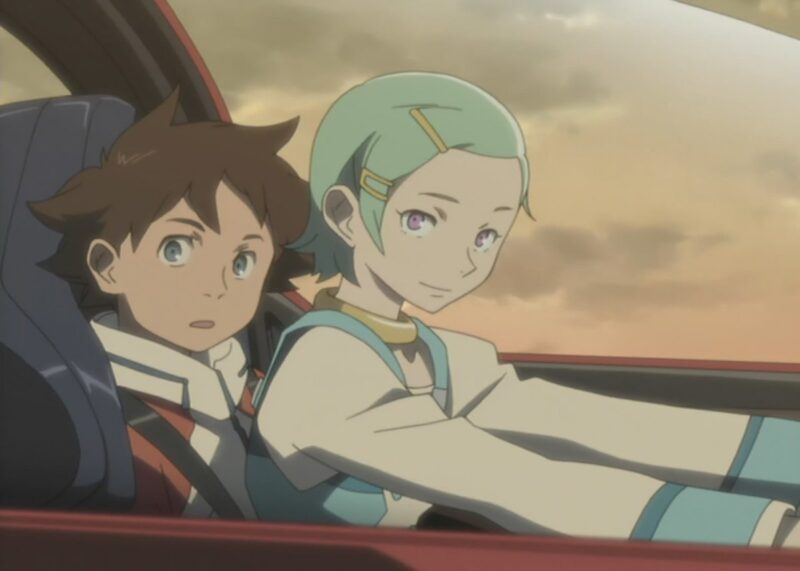
Anime can get lost in its own complexity. Mecha suffer from this in particular. The plot becomes a nonsensical jumble with loose ends and dead ends the writers have to somehow write themselves out of. Darling in the Franxx is the most recent victim of this problem. I won’t spoil the show if you haven’t seen it, but the supposed plot twist becomes a rushed muddle. Getting lost in complexity often leads to this problem. Darling attempts to build a complex world but the twist don’t have any roots in this world building. Instead, it just upended everything the story had tried to establish. It felt as if the writers did a lost minute rework to change the direction they originally headed and tried to tie off their world building in just a few episodes.
Complexity can extend to character relationships too. Most of the problem come from plot twists that lack proper hints. You’ve likely watched an anime that left you confused or dissatisfied. Overly complex stories that become muddled and suffer from poor plot twists usually cause this.,
Undoing Everything. The Dragonball Problem.
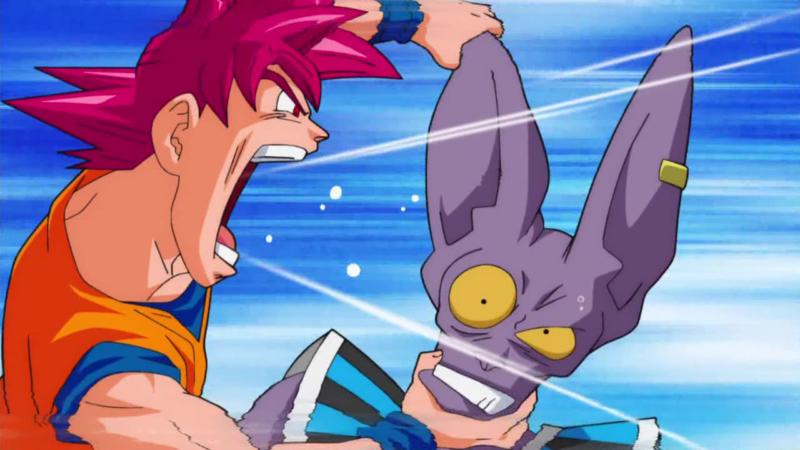
Anime appears to be afraid of lasting changes. Perhaps authors don’t want to risk upsetting readers, but in the end the Dragonball problem makes for weak story telling. The Dragonball problem involves the author undoing everything that happened–particularly character deaths–through some sort of mechanism. This kills any sort of tension. After all, where is the risk if a character can come back from the dead like Goku has? Risk and the reality of failure makes a story exciting. Without that risk, tension and excitement collapses. It’s just bad storytelling.
Don’t misunderstand. I enjoy Dragonball Z. But it could be better without the Dragonball mechanism to reduce tension. Granted, it has fun side effects like reviving powerful villains with the heroes by accident, but on the whole, the mechanism eliminates risk. I watched several fights, and while they were fun to watch, I didn’t feel any excitement. I knew they could somehow undo any of the “bad stuff” that would happen if the hero was defeated. The pattern become too entrenched in the story to think otherwise.
Stories that suffer from plot complexity often have a hard reset as a “twist.” It creates a sense of dissatisfaction because everything you had invested yourself in didn’t matter in the end. The Dragonball problem essentially says everything you felt and invested yourself within didn’t matter.
These are just a few of my peeves with anime. Of course, as long-time readers know, fan-service, flashbacks, and several other habits irritate me. What anime habits annoy you? How do they hurt anime as a medium?
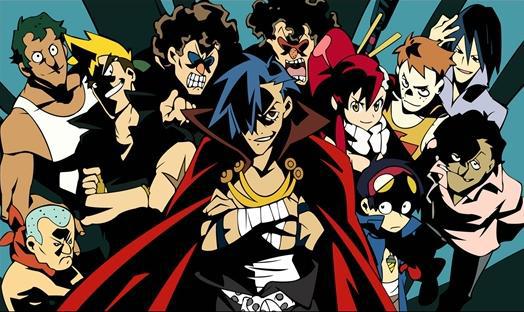
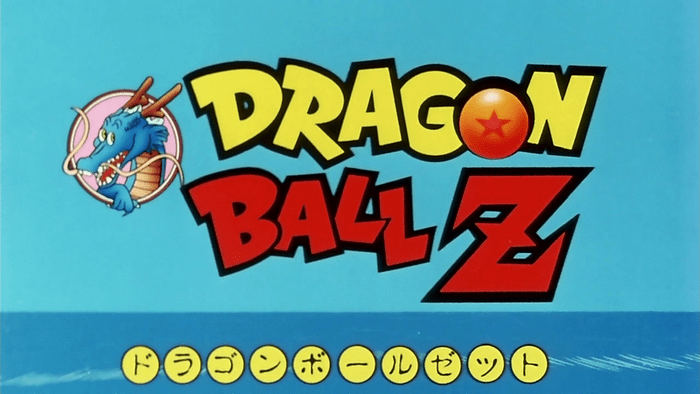

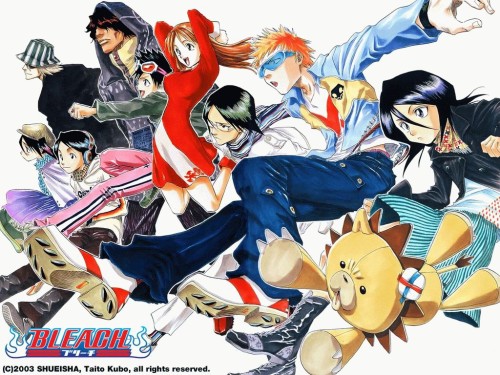
I agree with what you said, but frankly, I do not see all or most of the anime, so everything you said is mostly found in Shounen and some other anime, so I don’t see it spread as you say
It depends on the story, but I’ve seen these problems in shojo and seinen anime too. They appear a bit differently, What do you think are anime’s bad, universal, story-telling habits?
Gee, it’s as if target audience had some other culture than yours, and that while no one would ever watch a animated story made by your rules, tens of millions, sometimes hundreds, will enjoy that which you complain about.
Many anime studios target Western audiences now, especially with the Funimation, Crunchyroll, Netflix, and Hulu anime pushes lately. But I would be sad to see all the cultural differences disappear from anime.
“…everything you felt and invested yourself within didn’t matter”
Thank you for this, Chris. I’m smiling because if anyone bothers to ask ‘Hey, what’s the matter with you? Or if, more likely, it turns up in internal dialogue, I can now say ‘The Dragonball problem’ instead of trying to explain personal-existential-crisis resulting-from-loss-of-attachment-to-
self-conditions-relationships Heraclitus-might-understand-but-he-died where’s-the-bliss all-those-expectation-disappointment-hope-fear-binary-traps-fall-into-predictably-inevitably excuse-the-tantrum-don’t-kmow-what-to-do century-after-century whose-idea-was-this-anyway? Noooo.
Ah! The Dragonball problem.
That is how it is today.
Problem solved, in three words.
One word?
😂
😀 I’m glad you found the phrase helpful!
I beat up on Bleach and Dragonball, but I like them both despite their problems.